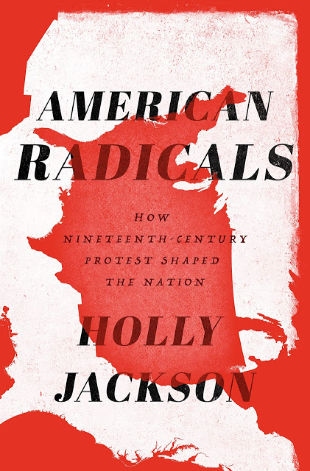"Thoreau lived at Walden for two years with nothing more complex than his own meals and safety to worry about. That site is now a state-funded shrine to the philosopher, where swarms of locals and tourists splash all summer in the glow of history. Brook Farm lasted three times as long, ran businesses, educated children, and coordinated hundreds of people. The site stands in weeds, marked by little more than a yellowed bulletin board with a typed paragraph about Transcendentalism and a vague silhouette of George Ripley cut from construction paper. Thoreau is revered, the Brook Farmers forgotten; iconoclastic individuals remain far more palatable to Americans than collective movements.
"Although a scant handful of the many thousands engaged in social protest in this period have been elevated to a pantheon of 'reformers' in national memory, this process requires a degree of simplification and defanging, the weirder elements of the counter-culture that nourished them edited out. Looking now at their portraits in waistcoats and lace collars, preserved in brass frames and tooled leather cases, one easily forgets that they were hated, mocked, and feared by most of their countrymen as aggravating oddballs looking to overthrow American life as they knew it. These activists knew their aims were utopian and had every reason to expect defeat, but they tried for them anyway. All that they accomplished was fired by this mix of radical hope and unrelenting antagonism, their willingness to hazard failure rather than accept the world as they found it.
"On the day Abba Alcott arrived at Fruitlands, trudging through a steady rain with her husband, their four small daughters, a cranky socialist colleague, and all of their belongings in a wagon, she wrote in her journal, 'Tho we may fail it will be some consolation that we have ventured what none others have dared.' Although the travelers claimed that day marked the beginning of the world's regeneration, Alcott likely already suspected that their venture would not last. It was June 1, which is far too late to begin cultivating enough food to survive the winter in Massachusetts. In six months, she and her little girls would be subsisting on apples and bathing in water so cold that it froze at the edges, because they had run out of firewood. Fruitlands failed, but as Alcott's journal reveals, exposing oneself to failure and rejecting mainstream measures of success were, in part, the point. They ventured to live as normal people would not dare rather than to betray values that they knew might be too lofty ever to realize.
"Thus, a history of radical thought must be a history of a certain kind of failure. We have so completely metabolized the wild ideas of nineteenth-century America that succeeded — women in paints, the telephone, regular bathing — that their original implausibility is lost. Success carries with it a feeling of inevitability, as though it represents merely the inexorable march of history, not a stray Hail Mary pass miraculously, just barely caught. Only the ideas that were dropped look impossible or silly to us now. But the stories of these activists summon a variety of potential Americas that have not come to be. At least not fully. At least not yet.
"So with what success can we credit the radicals of the glorious social revolution? Not spotless personal virtue, certainly. The achievement of some crucial goals, to be sure, but nowhere near the realization of their full ambitions. Following their lead, we might look not to the perpetuity of their outcomes but to the rightness of their principles, their success in prefiguring, at least for a time, a different and better world, and most of all their motivation to act on those principles in the face of failure, to try something when it is easier and safer by far to do nothing. Devoting their lives to a struggle with no end, they dared to begin."
